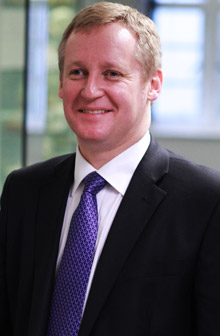-
-
- Advancement of the Professions Committee
- Standards Committee
- Audit and Risk Committee
- Education Committee
- Disciplinary Committee
- Charter Case Committee
- Preliminary Investigation Committee and Disciplinary Committee Liaison Committee
- Registration Committee
- Preliminary Investigation Committee
- Paper classification: some definitions
-
-
-
-
- About extra-mural studies (EMS)
- EMS requirements
- Information for vet students
- Information for EMS providers
- Information for vet schools
- Temporary EMS requirements
- Practice by students - regulations
- Health and safety on EMS placements
- EMS contacts and further guidance
- Extra-mural studies fit for the future
-
-
- Code of Professional Conduct for Veterinary Surgeons
- Code of Professional Conduct for Veterinary Nurses
- Contact the Advice Team
- XL Bully dog ban
- 'Under care' - guidance
- Advice on Schedule 3
- Controlled Drugs Guidance – A to Z
- Dealing with Difficult Situations webinar recordings
- FAQs – Common medicines pitfalls
- FAQs – Routine veterinary practice and clinical veterinary research
- FAQs – Advertising of practice names
- GDPR – RCVS information and Q&As
-
- Accrediting veterinary degrees
- Accrediting veterinary nursing qualifications
- Reasonable adjustments for student vets
- Health and disability in veterinary medicine study and practice
- The role of the veterinary schools and the RCVS
- Reasonable adjustments and the Equality Act 2010
- Reasonable adjustments and Day One Competences
- Examples of reasonable adjustments for vet students
- Annex
- Reasonable adjustments for student vets - summary
- Reasonable adjustments for student veterinary nurses
- Health and disability in veterinary nurse education and training
- Reasonable adjustments for students and the UK disability discrimination legislation
- Educational assessment of veterinary nurses
- Roles of key stakeholders in the application of reasonable adjustments
- Examples of reasonable adjustments for vet nurse students
- Embracing reasonable adjustments for student vet nurses - summary
- External review of the RCVS by ENQA
- Requirements for remote and online student assessments
RCVS Council agrees wholesale reform to the College’s governance
11 March 2016
At its meeting on Thursday 3 March 2016, RCVS Council agreed wholesale reform to the College’s governance arrangements to improve the efficiency and accountability of its decision-making processes.
The changes agreed by Council included almost halving the number of Council members and formalising lay and veterinary nurse membership.
Under the proposals approved by Council it would be reduced to 24 members – comprising 13 elected veterinary surgeons (constituting a majority of Council), six appointed laypeople, three members appointed on behalf of the UK veterinary schools and two veterinary nurses.
There would also be the option to appoint an additional member on behalf of any allied professions that RCVS Council may choose to regulate as associates of the College.
 Professor Stuart Reid (pictured), our Senior Vice-President and Chair of the Governance Panel that developed the recommendations, said: “I am delighted that Council so fully supported our proposals for a new structure. The new composition will ensure that both veterinary nurses and laypeople have a guaranteed place at the Council table, as well as maintaining a majority of elected veterinary surgeons and important input from the veterinary schools.
Professor Stuart Reid (pictured), our Senior Vice-President and Chair of the Governance Panel that developed the recommendations, said: “I am delighted that Council so fully supported our proposals for a new structure. The new composition will ensure that both veterinary nurses and laypeople have a guaranteed place at the Council table, as well as maintaining a majority of elected veterinary surgeons and important input from the veterinary schools.
“The proposal recognises the unique nature of the RCVS and will allow us to expedite our decision-making process, making us more fleet of foot and better able to respond to the needs of the profession and the public.
"It has also been constructed to allow Council to evolve its position, ensuring it remains relevant into the future. If all goes well we hope that the changes could come into force as soon as March 2017.”
Liz Cox, the Chair of VN Council, particularly welcomed the changes in respect of veterinary nursing representation on RCVS Council, adding: “It is an historic decision for veterinary nurses and one that has been long awaited. It is only right that those who work so closely alongside veterinary surgeons in practice should have a direct input into regulation that affects us all.”
Council’s approval of the recommendations was the culmination of two years of debate and consultation with the profession and other stakeholders. This included a formal consultation by the Department for Environment, Food and Rural Affairs (Defra) last year which garnered 52 responses – including from the British Veterinary Association (BVA) - most of which were supportive. Different options for reform had, in turn, been developed by a Governance Panel, chaired by Professor Reid, which was set up by Council in March 2015 to consider various options.
Defra will now run a short informal consultation to provide those who responded to the initial consultation the opportunity to comment on the proposed reforms. If no issues are raised Defra officials will seek approval from the Government to proceed with a legislative reform order (LRO) to make the necessary changes to the Veterinary Surgeons Act.
This LRO will be scrutinised by parliamentary committee and voted on in both the House of Commons and House of Lords. Once this has been passed there will be a three-year transitional period, agreed by Council members, during which Council’s numbers would be gradually reduced.